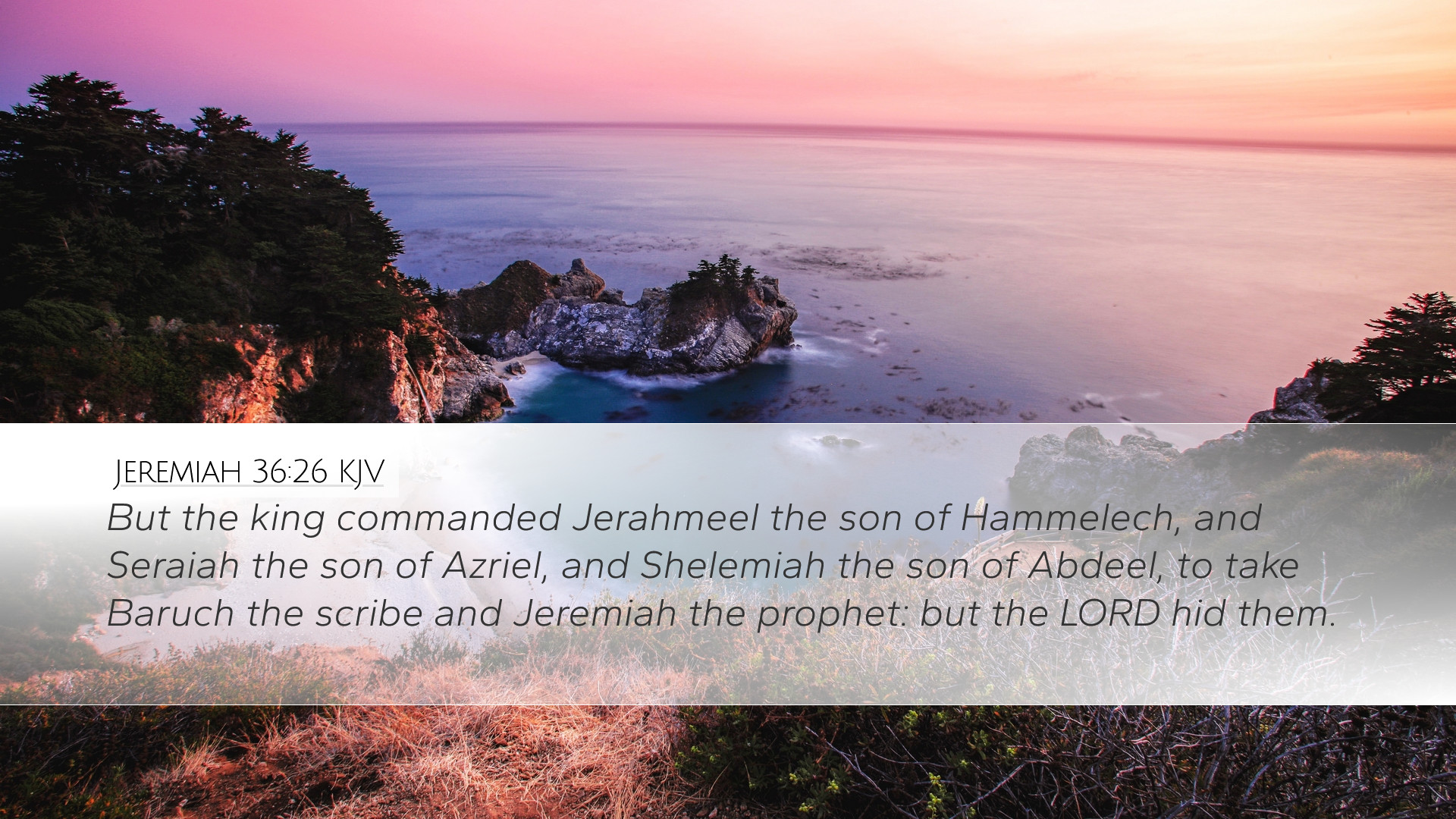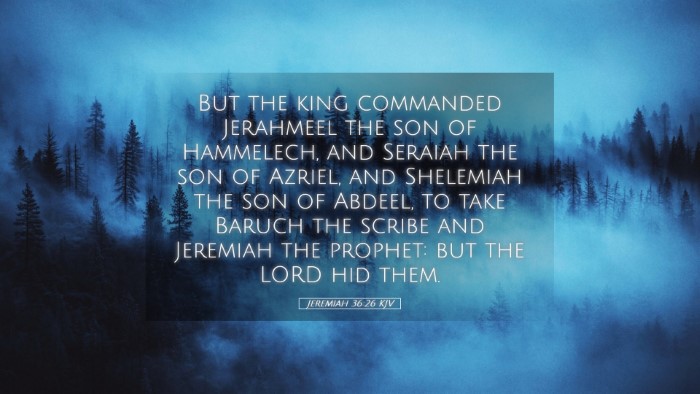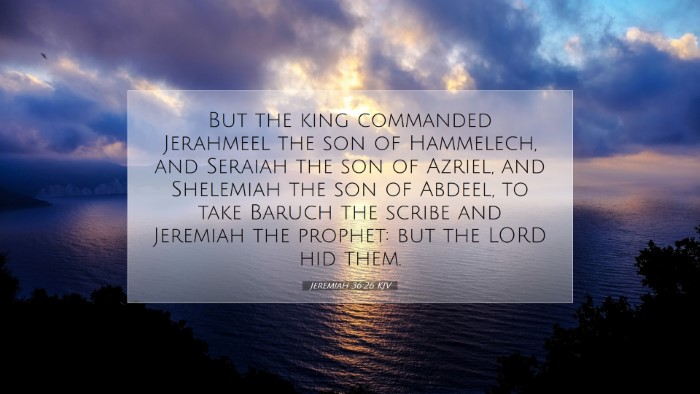Commentary on Jeremiah 36:26
Jeremiah 36:26 states:
"But the king commanded Jeremiel the son of Hammelech, and Seraiah the son of Azrael, and Shelemiah the son of Abdehel, to take Baruch the scribe and Jeremiah the prophet: but the Lord hid them."
Contextual Overview
This verse captures a significant moment in the ministry of the prophet Jeremiah and encapsulates the tension between divine authority and human resistance. The backdrop of this passage is critical; it occurs during King Jehoiakim’s reign, a time characterized by opposition to prophetic voices and a prevalent atmosphere of rebellion against God’s word.
The Characters Involved
- Jeremiah: As the prophet, he bears the responsibility of delivering God’s message to the people and the leadership of Judah.
- Baruch: Jeremiah’s scribe, playing a key role in writing and disseminating the prophecies.
- King Jehoiakim: His actions reflect a larger trend of rejection and dismissiveness towards God’s calls for repentance.
- God: The ultimate agent protecting Jeremiah and Baruch from persecution.
Exegesis of the Verse
In examining this verse, we observe several theological themes that resonate throughout scripture. The king’s attempt to seize Jeremiah and Baruch showcases the human inclination to silence God’s message when it threatens personal or political status. Jehoiakim’s command highlights a critical point of conflict between earthly authority and divine mandate.
Insights from Commentators
Various public domain commentators provide rich insights into this passage:
Matthew Henry
Henry emphasizes the significance of divine protection for His prophets. He notes that the Lord’s intervention to hide Jeremiah and Baruch serves as a reminder that God’s purpose shall not be thwarted by human opposition. Henry elaborates on the seeing that the act of hiding them symbolizes God’s ongoing commitment to preserve His word and those who deliver it.
Albert Barnes
Barnes provides a historical perspective, arguing that this event illustrates the broader patterns of kings rejecting prophetic truths throughout Israel's history. He highlights how God’s word is often met with violence and suppression, yet it ultimately prevails. Barnes also draws attention to the character of the king, noting that Jehoiakim’s actions were emblematic of the spiritual bankruptcy of the leadership during this period.
Adam Clarke
Clarke delves into the implications of God hiding His servants. He notes that such protection indicates God’s intimate involvement in worldly affairs, ensuring that His message and messengers endure despite opposition. Clarke further points out that this moment serves as an example for contemporary believers about reliance on God’s guidance and protection in the face of adversity.
Theological Implications
Jeremiah 36:26 offers profound insights into the nature of prophetic ministry, human authority, and divine sovereignty. Some key theological implications to consider are:
- The Sovereignty of God: This passage highlights God’s control over the affairs of humanity, as He orchestrates events to protect His messengers.
- Human Resistance to Divine Authority: It exemplifies the ongoing struggle between divine truth and human pride.
- The Role of Prophets: The verse underscores the risks taken by prophets and the necessity of their protection when delivering God’s word.
- God’s Faithfulness: The assurance that God is active in history and continues to fulfill His promises despite opposition is a recurring theme throughout the scriptures.
Application for Contemporary Believers
For pastors, students, and theologians today, this passage can serve multiple purposes:
- Encouragement in Times of Opposition: Understanding the divine protection of prophets can inspire believers to stand firm in their convictions, even when faced with hostility.
- Recognition of Authority: It prompts a reflection on authority—both divine and human—and whether one’s life aligns with God’s will or seeks to silence it.
- Commitment to God’s Word: It encourages a diligent commitment to studying and teaching God’s Word, reminded that it is more enduring than any earthly power.
Conclusion
Jeremiah 36:26 serves as a powerful reminder of God’s sovereignty amid human opposition. The narratives around Jeremiah and Baruch encourage believers to pursue truth fearlessly while trusting in God’s protection and guidance. The collective insights from the commentaries invite deeper reflection on the roles of prophets throughout scripture and their relevance in today’s faith community.


